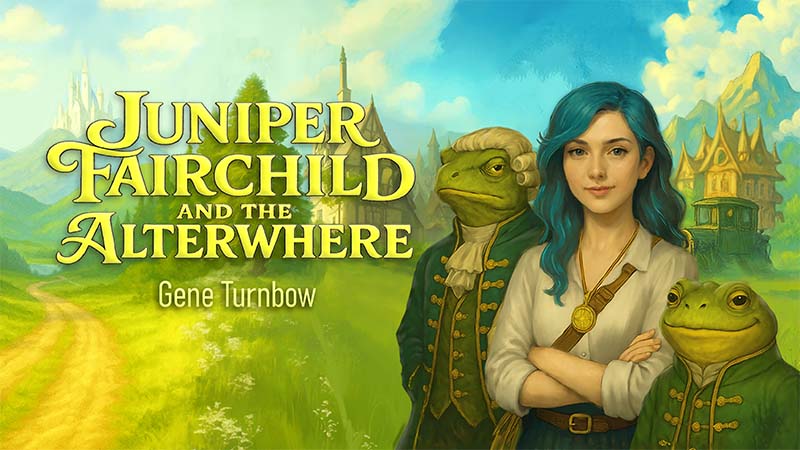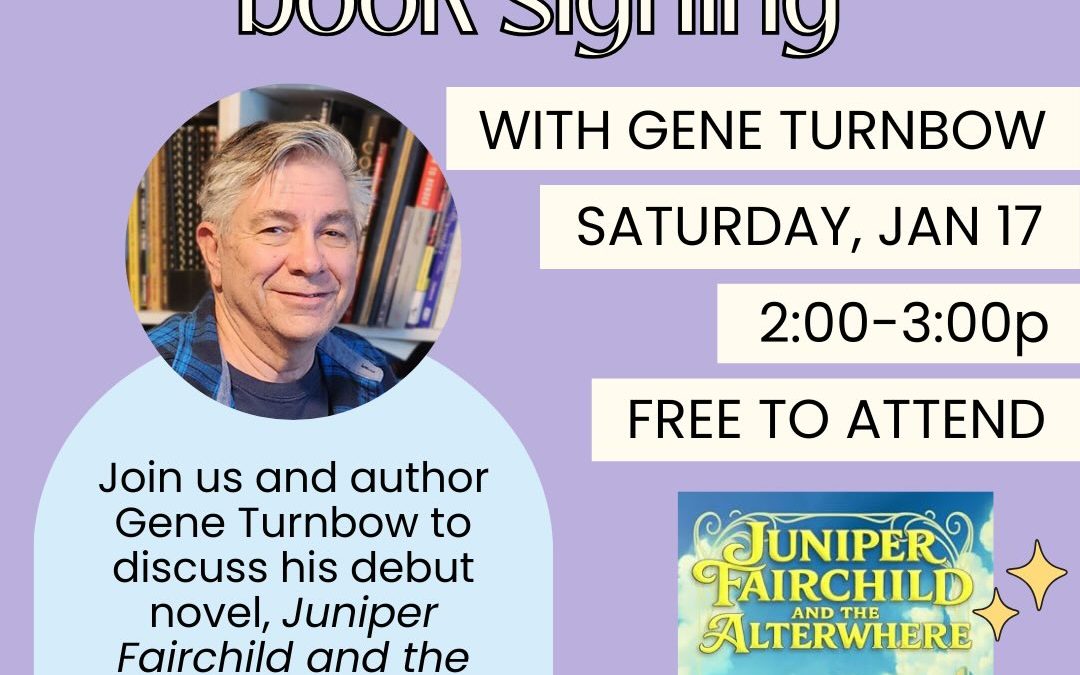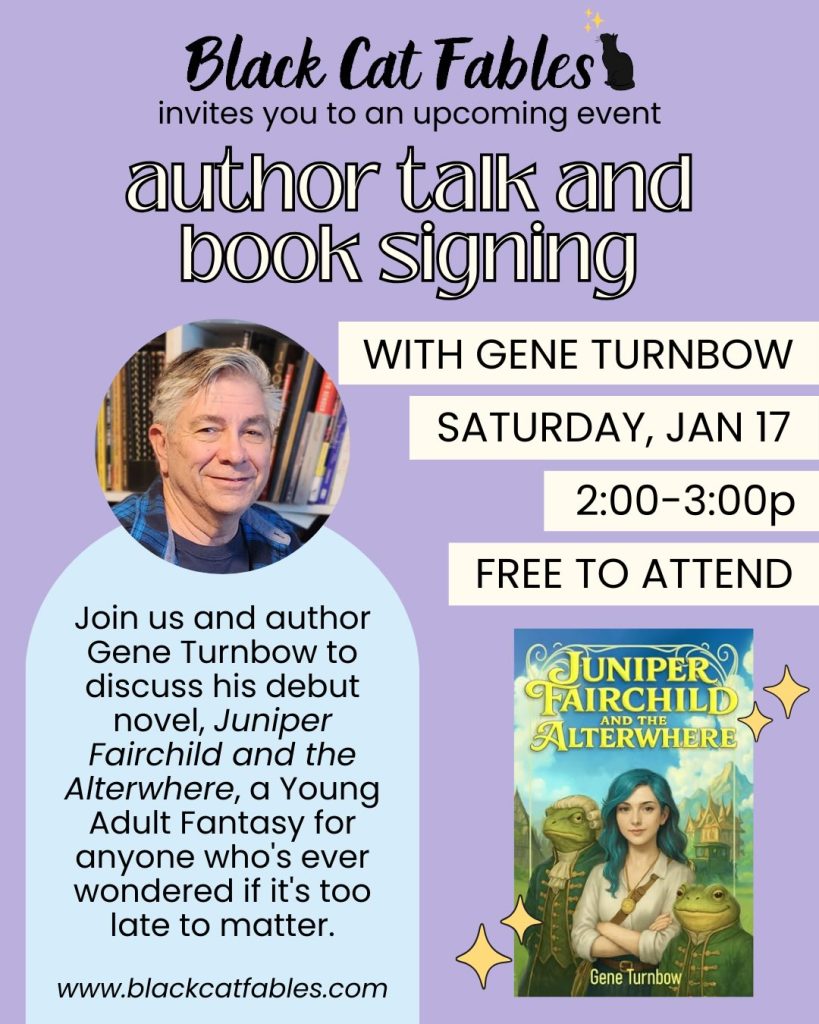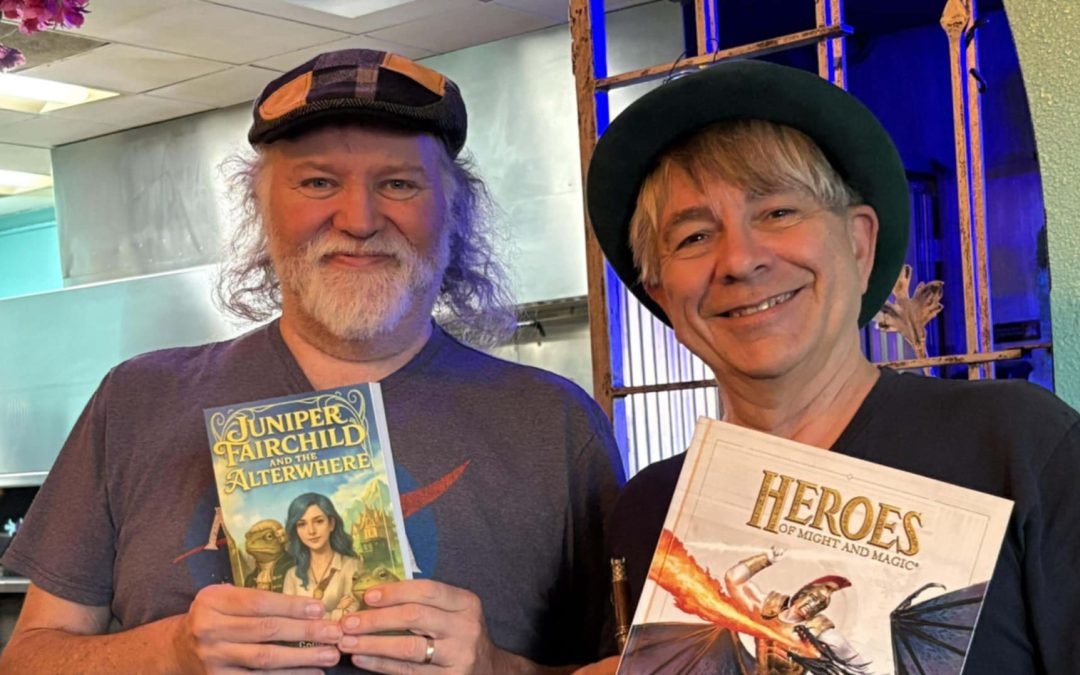
by Gene Turnbow | Feb 21, 2026 | On Writing
On February 29, 2026, Gene Turnbow will be doing a public appearance at the clubhouse of the Los Angeles Science Fantasy Society, the world’s oldest continuously meeting science fiction club. He will be reading from Juniper Fairchild and the Alterwhere and selections from his upcoming anthology Tales from the Alterwhere.
The reading will be featured during a regular meeting of the club. Doors open at 7 pm. The meeting starts at 8 pm.
The attendance fee is $5 for members and nonmembers alike. The address is 8819 Reseda Blvd. Northridge, CA 91324. Parking is one block north behind the commerce center.
LASFS has been meeting on a continous basis since its founding in 1934. The club’s history is incredible, and some of the most famous science fiction and fantasy authors to ever grace the publishing industry have been members. Members have included (and in some cases still include) Forest J. Ackerman, Ray Bradbury, Fritz Lieber, A.E. Van Vogt, Alan Dean Foster, BJo Trimble, Henry Kuttner, John DeChancie, Ray Harryhausen, Robert A. Heinlein, Larry Niven, Jerry Pournelle, Gregory Benford and Steven Barnes.
It’s an honor to walk among the same book stacks where these giants have trodden, and I’m looking forward to seeing you there. Perhaps you’ll want to join the club yourself.
See you there!
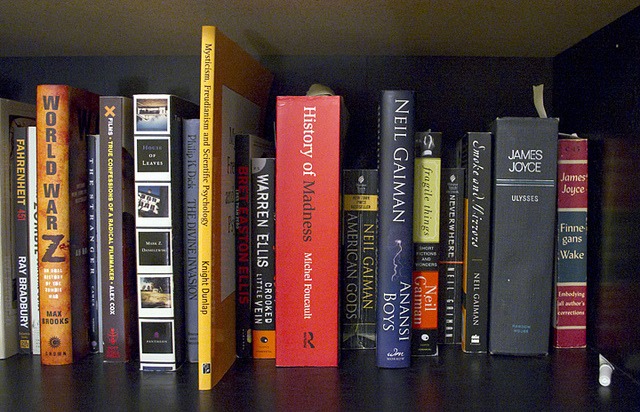
by Gene Turnbow | Oct 11, 2025 | On Writing
This is just sort of a grab bag of stuff I learned while publishing my first book, Juniper Fairchild and the Alterwhere. This advice applies to both indie authors and operators of small press.
Know Your Genre. Read.
Read everything. It’s great if you know the classics, but read the new stuff. Learn how to build your stories so that they fit in the formats your anticipated audience will expect to see.
Do not write a 600 page doorstop as your first book. You can do that later if you get popular. Likewise, do not write a pamphlet and present it as a book and expect to be taken seriously.
Organize Everything
People who say they write by the seat of their pants aren’t telling you the whole truth: sooner or later you have to make an outline, and you have to fit what you’ve written into that outline, or you haven’t got a book. It’s better to plan things out, then write. Authors who can write straight ahead are those who are so skilled that they can do the planning part in their heads without writing it down. You are not one of those writers.
Copyrights
File for a copyright for your work. It only costs $45, and you can’t necessarily rely on your publisher to do it for you, even if they’re contractually obligated to do it, because publishers are human at best, and people forget things. If you’re publishing your own work, there’s no excuse not to. If you run your own publishing company, encourage your authors to do it themselves and show them how. Authors owning their own copyright is a powerful thing.
ISBN Numbers
You should buy a batch of ISBN numbers from Bowker. Don’t buy them one at a time. Each version of your book will need a separate one, and by the time you’ve used three, you might as well have bought the ten pack.
Do not buy ISBN numbers from anyone else. They’re lying to you when they say they can sell you one. ISBN numbes are not transferrable, and Bowker is the only source.
Do NOT pay the extra $25 for a barcode from Bowker. Bar codes are automatically generated by both KDP and Ingram Spark and applied to your book cover for you, so you never have to fuss with it, and you get those bar codes for free.
If the only place you will ever publish your book is Amazon, then you do not need an ISBN number at all, they can supply you with one (but because they actually own that ISBN number and not you, you cannot use the ISBN number you get from them anywhere but on Amazon).
If you’re Canadian, don’t buy your ISBN number from anybody. Get an account with Library & Archives Canada, which will issue you a batch of ISBN numbers for free. Follow this link to find out what you need to know.
Library of Congress Numbers (LCCN) – Getting into Libraries
To get your book into libraries, you’ll likely want to take the extra step of getting your book registered with the Library of Congress, and that means sending them two physical copies of your book. In return, you get an LCCN, a Library of Congress Control Number. That number, when used by other libraries, provides access to other important information about your book.
Do you have to have an LCCN to publish? No.
Can you get into bookstores without one? Yes.
However, all the best books, and every book published by the Big Five, have LCCN’s. If you want to be taken seriously, an LCCN is advised, and people expect to see it on your copyright page. Your opinion on this may differ from mine, but I think it skipping this would be like going to a dinner party in a tuxedo jacket and bermuda shorts, or in a cocktail dress and beach sandals.
Getting Into Bookstores
It’s easier than you think. You just have to go through all the steps.
If you want to get your book into libraries and bookstores, you will have to publish either through Barnes & Noble Press, or Ingram Spark. There is no point in doing both. Either of them will ask you for an ISBN number and will not provide one to you.
Once you are listed on either of these services, though, any bookstore in the world and any library in the world will be able to order your book. If your book is listed on Ingram Spark, it will automatically also be listed on Barnes & Noble. I walked into a local Barnes & Noble, introduced myself, showed them my book, and they ordered from Barnes & Noble on the spot.
That said, doing bookstore appearances is all about building your local reputation as an author. Selling books is a nice bonus from that, and you might make a couple hundred bucks if the signing goes really well. Or, you might not. Just enjoy the experience and go with the flow.
Neither should you fall down on this aspect of it, by the way, nobody’s going to promote you better than you, so make a list of local bookstores and try and get in wherever you can.
Don’t Do Your Interior Design in Word. Just… don’t.
Don’t submit the interior design of your book as a Word document. I know they all accept that format, but don’t do it. For a good interior design, you will want pixel accurate control. You’re not getting that from a Word document. Use Atticus, or Vellum, or Adobe InDesign to output a PDF file.
Remember that writing a good book is the bacon, but the interior and exterior design of the book is the sizzle that sells it to whomever picks it up to take a look. If a book is pleasing to the eye both outside and in, before the reader ever gets to the text itself, you stand a vastly better chance of actually selling the damn thing.
Ingram Spark versus Amazon KDP
Both Ingram Spark and Amazon allow you to update both your cover and your content. Prior to January 1 of 2026, only Amazon would let you do that for free after publication. Now Ingram Spark has seen the value of letting people do that for free as well, and as of the first day of 2026, you can now change your content for free. Get it right the first time if you can, though.
Also, do not assume that you can upload changes to either service and have those changes propagate to books already in the printing pipeline. They can’t just yank content and replace it on the fly. Printing pipelines are enormous machines, and once you load up the books’ content and press “go”, that’s it. It goes into the machine and comes out as a book. The machine cannot be interrupted or opened while it’s running. Any changes you make will apply to the next batch, not any currently running batches.
I have watched videos where self-published authors have gotten their knickers all atwist because they tried to make last minute changes after orders were already in the pipeline and they did not understand that it wasn’t that Ingram Spark would not help them, it’s that they could not help them.
Be aware that KDP uses a different coating on their matte cover stock for the covers than Ingram Spark does. Ingram Spark’s cover coating results in deeper, richer colors. The difference is noticeable, but only when you’re holding examples side by side in your hands. You’ll never notice the difference otherwise.
Also note that for some reason Ingram Spark’s paper is slightly thinner than KDP’s. This results in a thinner book, so you’ll have to adjust your cover design to compensate. Use their template. The change will mostly be in the book’s spine, but if you have a wraparound cover, you’ll need to adjust graphical elements on your cover design to suit the thinner spine.
Surprisingly, the amount of bleedthrough on the thinner Ingram Spark paper is no worse than that for the KDP paper. I thought being thinner would make the Ingram Spark paper slightly worse in that regard, but for some reason it doesn’t. It might be thinner, but it is possibly also more dense, so it comes out about the same.
The finish work from both Ingram Spark and KDP is about the same. Very very rarely you’ll get a bad trim, but if you do, it’s not worth trying to get up in either company’s grill over it. They’re not built to handle one-off issues, and will not handle this to your satisfaction, and it’s not worth your time. Just eat the cost of the one book, or sell it at a discount if you must.
Wrapup
I hope this list of tips and tricks is useful. I learned it all by trial and error and doing my own research. I was surprised to find that nobody had ever assembled these tips together on a single page before, so may this list short circuit your journey and make your life as a published author somewhat less of a struggle.
–Gene
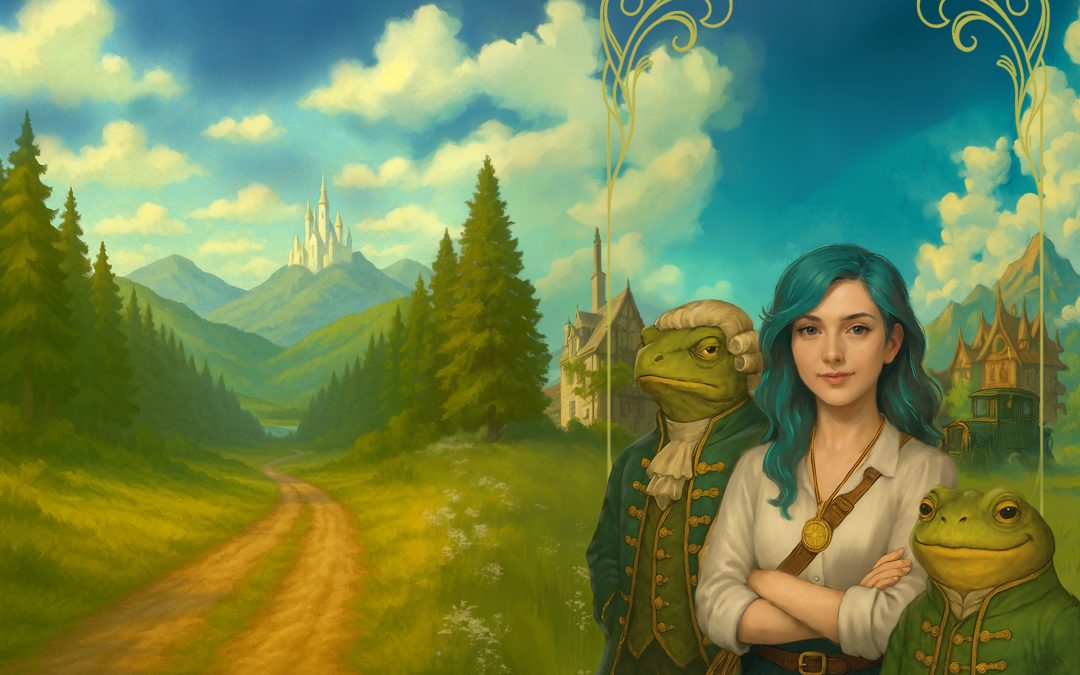
by Gene Turnbow | Aug 11, 2025 | On Writing
There was a time when one typed up a manuscript and spent a stupid amount of postage to get it copyrighted, because everything had to be done on paper then. Then you would spend a stupid amount of money on postage again, each time you sent it to a new prospective publisher. Agents weren’t something a writer had, you just sent your query directly to the publisher, and hope that they asked to see more of it. Very frequently that request might hinge on how many short stories you had sold to major trade magazines.
Then you would send your book to the publisher, and hope for the best. Months might go by, during which time you were unable to send the book to anyone else. If you got a deal, you might get a nice advance that would allow you to keep the lights and phone connected and pay for food while you wrote the next one.
None of that is true anymore.
Now the periodicals are gone, and I mean gone gone. There are a few online still, but nothing on paper. It’s not like the old days of Analog, Galaxy, and Worlds of If, when everything was on paper, and people had bookshelves full of them in their homes, as I did. How I loved them! A friend of mine from high school gave me about a hundred or so of them, and I dearly loved each edition, and read them all cover to cover.
But now, there is no bellweather like periodicals to tell a publisher that you’re worth a nod. Well, there sort of is, but I’ll get to that in a moment.
Instead, there are agents, who do the slush pile reading that the publishers used to do. All new writers yearn for representation, because getting an agent is now pretty much the only way into being traditionally published, and the number of available writers compared to the number of agents is badly skewed against us. Getting an agent is roughly like winning the lottery, and it really doesn’t depend on how good you are as a writer.
What does matter is what’s trending right now in the fiction publishing marketplace, and there’s no way to write to the current trend unless you are (a) an insanely fast writer, and (b) can write well enough at that speed to be worth reading. Most people aren’t. Seanan Macquire, Kevin J. Anderson and John Scalzi all are. Alas, I am not John Scalzi, nor do I have his reputation, and in fact few have heard of me as an author or otherwise.
So what’s a newly minted writer to do?
If you decide to forego traditional publishing and just raw dog it, you suddenly find yourself responsible for:
- Designing your own cover, or finding someone who can. There’s no excuse for a bad one. There are people on Fiverr who can help you, at least do that much.
- Designing your own layout, or finding someone who can. There’s a learning curve, but it’s also an art, and the more attention you pay to this the nicer the experience will be for people who bought your book.
- Getting your book professionally edited. You are not getting your book press ready without at least a line editor, preferably a t least a copy editor as well, and sometimes a developmental editor. This typically costs thousands of dollars, so its little wonder that self published books frequently do without some or all of these levels of editing.
- Hitting social media like a spastic bongo player, on all channels, every single day. Every. Single. Day.
- Finding opportunities to promote your book to get review readers, on Goodreads, and StoryOrigin, and Bookfunnel, all of which costs money you probably haven’t got.
- Wading through hundreds of instant messages a week, trying to sort the genuinely interested from the ones trying to sell you author’s services (pro-tip, the radio is 8:1 against).
- Expanding your book’s universe by writing additional stories set in that world, so you can give them away as freebies to help hook people on the idea of buying your book.
And now, here’s the terrible secret
Except for the cover design, interior design and editing, you would have been responsible for everything else if you had been traditionally published anyway.
Only a very rare few are lucky enough to be able to self publish and have all the necessary skills to backfill all of these publishing tasks, plus all the marketing. I’m apparently one of them, and I am white-knuckling this whole process. I am so new that I have no clear idea what works and what doesn’t. Sometimes a video will go viral. Other times, TikTok will decide it simply does not like you.
I wish I could tell you some secret sauce that would make all this pain go away so that your book will sell thousands of copies a year. I can’t. Not only don’t I know how it works, apparently the path is a little different for every single author. The one common thread in every case study I’ve made is that the author had mad technical skills when it comes to making marketing content, and a sort of a bonzai, take no prisoners attitude.
Personally, I am going after this stuff with a warhammer. I just absolutely refuse to admit to myself that I could fail at this, and every day I push myself to see if I can find some new thing I ought to have known should have been working to fix months ago, but didn’t know anything about. It’s a good thing I’m retired, because this is turning out to be a full time job.
And yet, hope survives
And yet I am hopeful. Getting the word out has been ridiculously hard. I have no idea how other authors do it. Other fantasy authors have 60,000 reviews per title on Amazon, and I am not kidding about this at all. I have five, on Goodreads as I write this. But the five I do have are very good quality. What I lack in numbers, I have in sincerity. People who have actually read the book are genuinely happy to have read it, and say so.
There are glimmers of sunshine.
A significant Hollywood production company has requested a copy of the book. They make animated features. I can’t say which one, because I’d look pretty silly in public if it didn’t happen (and it probably won’t, the odds are not in my favor on this).
One Hugo and Nebula award nominated author loves my book, and has said so in public in his review of it. A Hugo grandmaster is reading it now. I’m hoping to get more of these sorts of endorsements.
Keep Moving Forward
And now, there’s nothing left but to keep moving forward.
I have new giveaways in the offing, and you’ll read about them here before I post about them anywhere else.
Thanks for sticking with me.
Gene Turnbow

